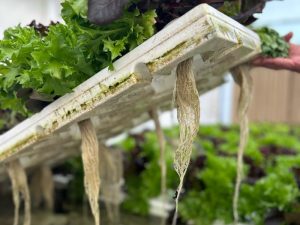We are now halfway through the growing cycle and, in some cases, starting the campaigns for many summer vegetable crops, particularly cucurbits like melon and watermelon.
In these crops, biostimulation is a key factor for plant growth and resilience, helping optimise yields and maximise crop profitability, all while promoting greater sustainability and environmental care.
With AntiOX technology, the plant’s potential is maximised at every stage of the vegetative cycle: from germination and transplanting, to sprouting, active growth, flowering, fruit set, ripening, and harvest.
Fertiberia TECH is always at the forefront of biotechnological products for agriculture. The new and innovative Neoforce® line, based on AntiOX technology, represents the latest breakthrough in the biostimulant market.
Neoforce® AntiOX has been certified by notified bodies under Regulation (EU) 2019/1009 as a non-microbial plant biostimulant. This scientific advancement is the result of a rigorous development process that included the creation of more than 400 prototypes, evaluated for compatibility, physicochemical stability, shelf life and, most importantly, agronomic efficacy.
Benefits
Each product in the Neoforce® AntiOX line is designed to optimise the plant’s physiological processes at every stage of development. Neoforce® Brix AntiOX is specifically aimed at preventing nutrient and growth deficiencies in melon and watermelon crops, delivering outcomes such as: optimising the balance between vegetative growth and fruit production, promoting fruit development and sizing (larger calibres), enhancing photosynthetic efficiency, improving organoleptic properties (sugar production, firmer fruit, etc.), increasing nutrient bioavailability, and responding rapidly to abiotic stress.
RELATED NEWS: Neoforce® Soil: Innovation for soil protection and health
Another benefit of AntiOX technology is its ability to reduce oxidative stress caused by abiotic factors, bringing the plant closer to a REDOX balance. In the case of melon and watermelon, UV radiation, high temperatures and drought are major limiting factors for yield.


















